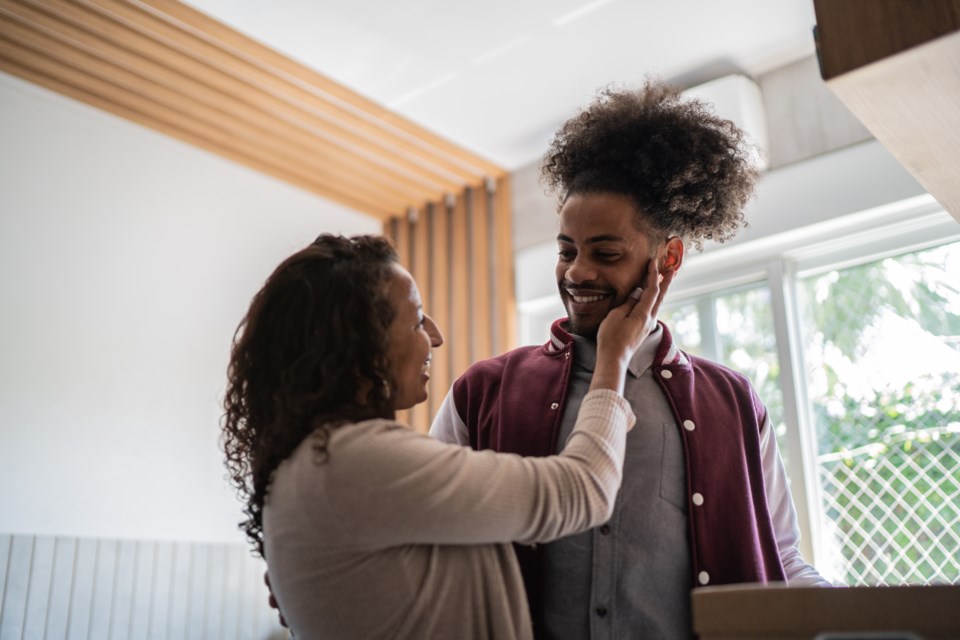Dear Ellie: I need advice on how best to approach my son regarding how much time his daughter (my granddaughter, age six) spends at my home. I’m 50, have depression and PTSD, plus anti-social anxiety. I lost my eldest son when he was 18 and my husband at 45.
We had kids in our teens, and raised three sons. My second eldest has moved home and I love him being here, but we’d agreed that my granddaughter could stay every other weekend, then just in the afternoons of the next weekend.
I love her but my mental health makes some things very hard. Now, her sister is coming every Sunday after dinner and spends the night since both their parents’ work. I’m expected to get them up and ready for school: Doing their hair, making lunches, getting their bags packed, etc., etc.
I was never asked to do this, just told by my son. Also, I have chronic back pain, herniated and bulged discs in my back, and sciatica. Some days I can barely get out of bed because of depression or pain.
I’ve tried discussing this with my son but he gets very defensive or says it’s his house too. I love him but fear it’s going to turn into another argument. I feel like my feelings don’t matter and I don’t have control over my own home.
DESPERATE!
This is when you most need firm support from the professional people (your doctor, back specialist, therapist, etc.) who’ve previously diagnosed your ongoing medical, physical and mental health conditions.
Your son is taking advantage of you, even hinting about the house being “his, too.” You cannot just accept his self-serving orders. He chose to “move home” and can do his own parenting tasks there, but he’s not your boss.
Your feelings of desperation matter most. Talking to your health supporters is essential. If your son ignores the information, and the limits on when and how long your granddaughters visit, your needs may require that he move out and care for his daughters himself, and only have granddaughter visits, not sleepovers.
Reader’s Commentary: “Recently, I sought your advice about having dated my then-girlfriend for six months. I’d just started university and realized that I don’t see her mothering our future potential children. I’d been thinking about breaking up but worried it would devastate her, and/or I would regret my decision.
“You asked me what’s changed and why I’m thinking of what the parent/partner should or would become. Well, I’m still young and changing priorities quickly.
“We had a great relationship — sensitive, vulnerable, trusting, and other great qualities. But I realized we aren’t fit for marrying each other because we were raised so differently.
“So, I began to detach. I only date-to-marry. I talked to her about these major differences, how I don’t see us getting married, need to focus on my education and career development. We were both visibly sad. I said no to getting back together so she’d get closure and move on.
“We ended on decent terms. The hardest part was seeing her sad. She’s an amazing woman and deserves someone who’ll match her on her wavelength. That person is just not me.”
Ellie — Youthful self-absorption is common at this age and life stage. You’ve explained your breakup motive being about future marital dysfunction … no current problems.
However, marriage thrives when love and trust are compelling, despite being raised differently. That can also be a romantic boon from experiencing different ideas and cultures.
Dear Ellie: My closest friend has struggled with clinical depression since age 10, when the prevailing attitude was that children didn’t get depressed. Now we know different. (Ellie: The long months of COVID-19 isolation for children at home, instead of at school among friends, exacerbated, and occasionally triggered clinical depression in children).
This friend also has other serious health issues. How can I continue to support my friend without being dragged down by these problems?
Caring Friend
Your empathy is evident to your friend, over many years. Fortunately, they now have access to a great deal of information about depression and how it affects everyone.
Your role as long-time close friend is to listen, and acknowledge their feelings without judgment, nor being responsible to do something about other current health issues.
Walking outside together when possible, watching a movie or discussing a book you’ve both read, are diversions from discussing your friend’s health.
Ellie’s tip of the day
A health-compromised parent must seek professional supports to prevent her adult child from bullying her and giving her work orders.
Send relationship questions to [email protected] or [email protected]




